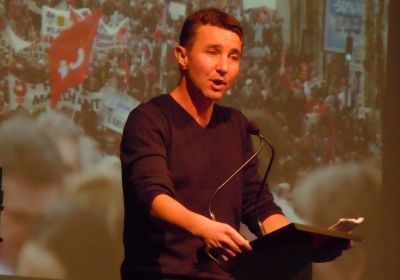
-
 The New Anti-capitalist Party (NPA) held its congress in the Paris suburb of Montreuil over February 11-13. The congress adopted by a large majority a document, Our Responses to the Crisis, which analyses the multiple crises gripping capitalism: economic, social, food and climate, and outlined a vision of anti-capitalist, ecosocialist politics.
The New Anti-capitalist Party (NPA) held its congress in the Paris suburb of Montreuil over February 11-13. The congress adopted by a large majority a document, Our Responses to the Crisis, which analyses the multiple crises gripping capitalism: economic, social, food and climate, and outlined a vision of anti-capitalist, ecosocialist politics. -
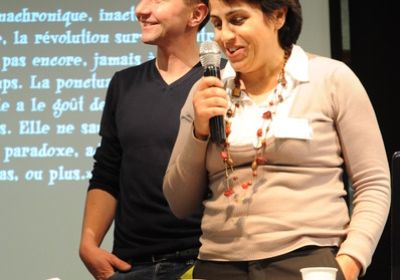 Ahlem Belhadj is a Tunisian revolutionary socialist and member of the Ligue de la Gauche Ouvriers (Left Workers’ League). It is a part of the January 14 Front, which unites left-wing groups seeking to push Tunisia’s revolution forward by creating a new government free from members of the former ruling party, and supports policies reversing neoliberalism. Belhadj spoke with Green Left Weekly’s Tony Iltis on February 12 about the Tunisian revolution. * * *
Ahlem Belhadj is a Tunisian revolutionary socialist and member of the Ligue de la Gauche Ouvriers (Left Workers’ League). It is a part of the January 14 Front, which unites left-wing groups seeking to push Tunisia’s revolution forward by creating a new government free from members of the former ruling party, and supports policies reversing neoliberalism. Belhadj spoke with Green Left Weekly’s Tony Iltis on February 12 about the Tunisian revolution. * * * -
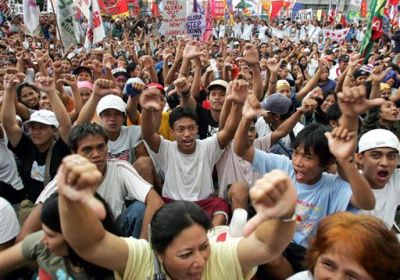 Full Quarter Storms By Sonny Melencio 2010, Transform Asia Inc. [email protected] Veteran Filipino socialist activist Sonny Melencio’s political autobiography, Full Quarter Storms, covers a lot of history. The book tells the story of the “First Quarter Storm”, the student uprising in 1970 (from which the book draws its title), and the driving of this powerful movement underground by the declaration of martial law by then-president Ferdinand Marcos in 1972.
Full Quarter Storms By Sonny Melencio 2010, Transform Asia Inc. [email protected] Veteran Filipino socialist activist Sonny Melencio’s political autobiography, Full Quarter Storms, covers a lot of history. The book tells the story of the “First Quarter Storm”, the student uprising in 1970 (from which the book draws its title), and the driving of this powerful movement underground by the declaration of martial law by then-president Ferdinand Marcos in 1972. -
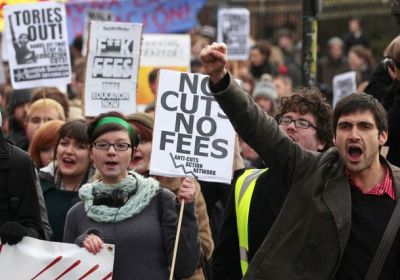 On November 10, tens of thousands of students marched through London against education cuts and fee hikes. This was an indication of the revival of a militant student movement in Britain. Clare Solomon, president of the University of London Union, told Green Left Weekly: “That demonstration was absolutely electric, especially when we occupied the Millbank Tory party headquarters. “There were thousands and thousands of 14, 15 and 16-year-old students, dancing, singing, hugging. It really was like a carnival of the oppressed.”
On November 10, tens of thousands of students marched through London against education cuts and fee hikes. This was an indication of the revival of a militant student movement in Britain. Clare Solomon, president of the University of London Union, told Green Left Weekly: “That demonstration was absolutely electric, especially when we occupied the Millbank Tory party headquarters. “There were thousands and thousands of 14, 15 and 16-year-old students, dancing, singing, hugging. It really was like a carnival of the oppressed.” -
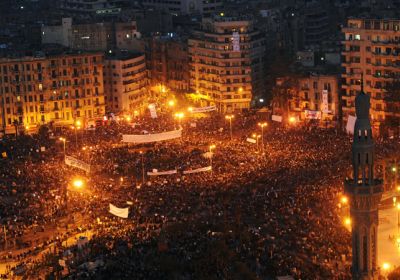
Regardless of the outcomes of the Egyptian and Tunisian revolutions, and regardless of whether protests for democracy in Yemen, Jordan and other Arab countries grow into similar uprisings, the Middle East has fundamentally changed.
-
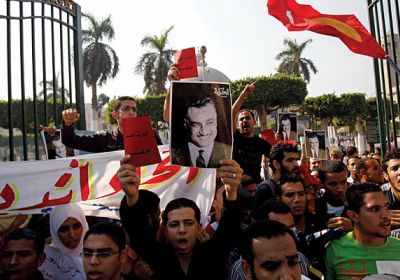
Having started with a fearless uprising for democracy and economic justice that is sweeping the Arab world, 2011 is shaping up to be a decisive year for the Middle East.
-
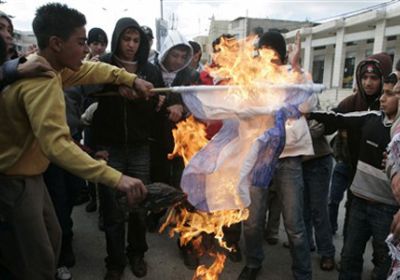
Papers leaked to Al-Jazeera, as well as secret US cables published by WikiLeaks, have exposed how Israel and the United States have used the Middle East “peace process” to push total capitulation on the Palestinian side.
-
Wikileaks founder Julian Assange said that over the next six months, Wikileaks will be releasing more files related to Israel. “There are 3,700 files related to Israel and the source of 2,700 files is Israel,” he told Al-Jazeera on December 22. “The Guardian, El Pais and Le Monde have published only two percent of the files related to Israel due to the sensitive relations between Germany, France and Israel.”
-
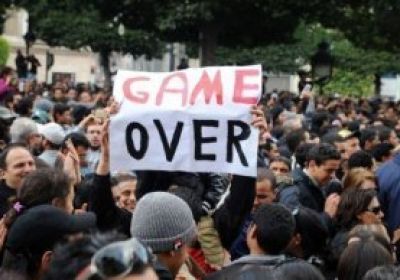
After 23 years of dictatorial rule, Tunisian President Zine El Abidine Ben Ali was forced to resign and flee to Saudi Arabia on January 14 due to a mass uprising.
-
 One of the features of advances in military technology is that an increasing proportion of those killed in wars are civilians, not combatants. During the 20th century, airstrikes became the preferred form of warfare by technologically well-resourced superpowers. This led to civilians becoming the majority of those killed in wars worldwide. In the first decade of the new century, new developments in military technology have raised the possibility for powerful countries of increasingly dispensing with combatants entirely.
One of the features of advances in military technology is that an increasing proportion of those killed in wars are civilians, not combatants. During the 20th century, airstrikes became the preferred form of warfare by technologically well-resourced superpowers. This led to civilians becoming the majority of those killed in wars worldwide. In the first decade of the new century, new developments in military technology have raised the possibility for powerful countries of increasingly dispensing with combatants entirely. -
 The 2005 Naivasha Agreement ended the civil war between the Sudanese government and the Sudanese Peoples Liberation Movement (SPLM), based in South Sudan. About 2 million people were killed in the 1983-2005 conflict. A further 500,000 people were killed in the 1955-1972 civil war, also fought between the government and rebels in the south. Under the agreement, a referendum on independence will be held in the south in January 2011. The SPLM leadership recently endorsed independence for the South, while prior to the peace process it been committed to a united, democratic, federal Sudan.
The 2005 Naivasha Agreement ended the civil war between the Sudanese government and the Sudanese Peoples Liberation Movement (SPLM), based in South Sudan. About 2 million people were killed in the 1983-2005 conflict. A further 500,000 people were killed in the 1955-1972 civil war, also fought between the government and rebels in the south. Under the agreement, a referendum on independence will be held in the south in January 2011. The SPLM leadership recently endorsed independence for the South, while prior to the peace process it been committed to a united, democratic, federal Sudan. -
 Burma’s November 7 elections — held under an undemocratic constitution in an atmosphere of repression and with the result crudely rigged — have been overshadowed by the release from house arrest of opposition National League for Democracy (NLD) leader Aung San Suu Kyi on November 13. Thousands of supporters lined the streets to her house and flocked to NLD offices to hear her speak. Suu Kyi’s release has been compared to that of Nelson Mandela in 1990. However, unlike Mandela, Suu Kyi was not released from detention by a regime seeking negotiations.
Burma’s November 7 elections — held under an undemocratic constitution in an atmosphere of repression and with the result crudely rigged — have been overshadowed by the release from house arrest of opposition National League for Democracy (NLD) leader Aung San Suu Kyi on November 13. Thousands of supporters lined the streets to her house and flocked to NLD offices to hear her speak. Suu Kyi’s release has been compared to that of Nelson Mandela in 1990. However, unlike Mandela, Suu Kyi was not released from detention by a regime seeking negotiations.